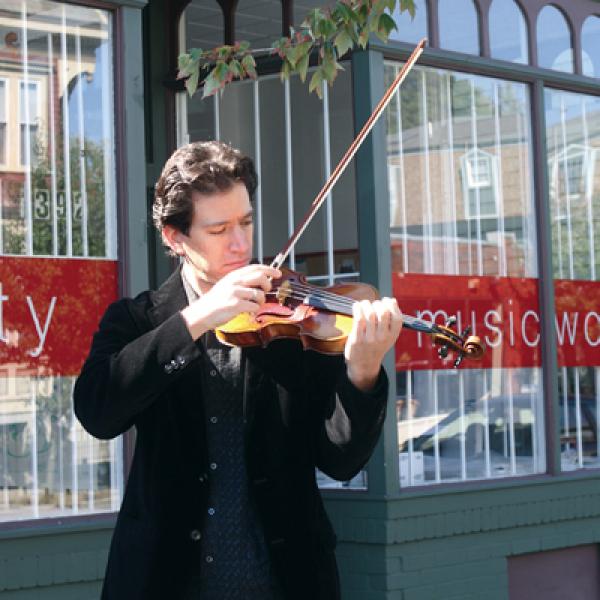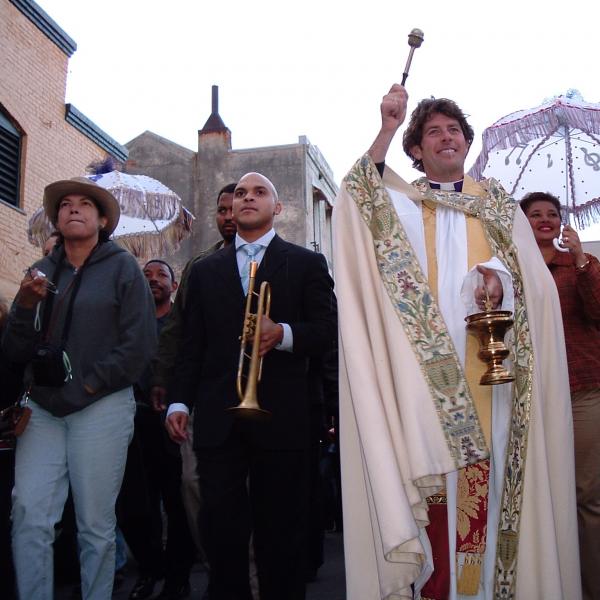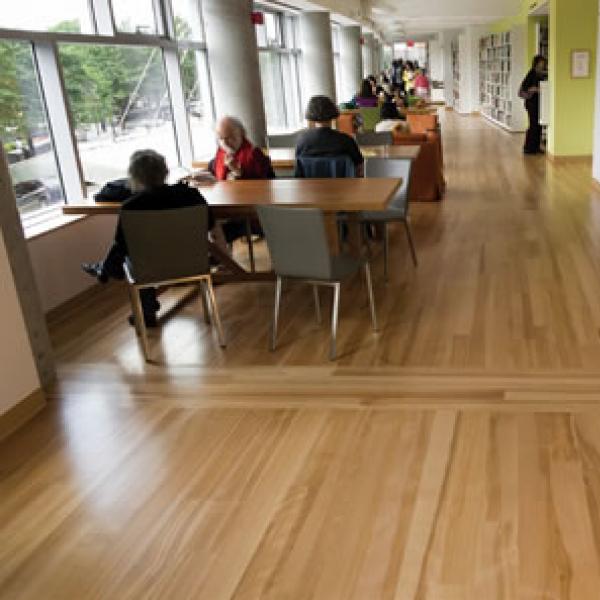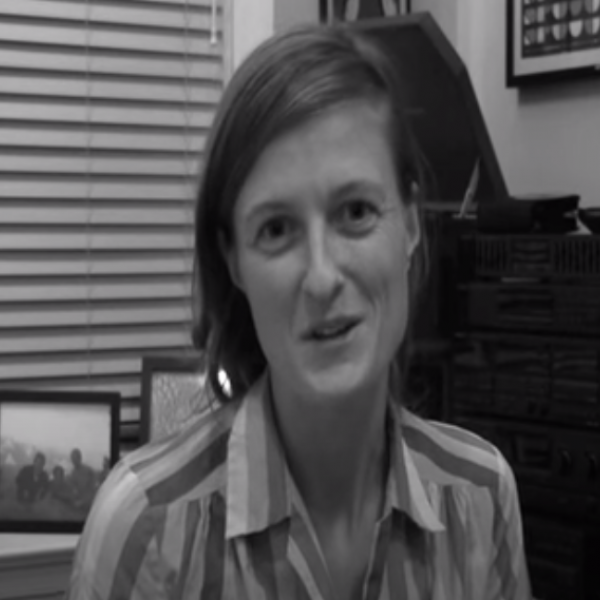What the Doctor Ordered
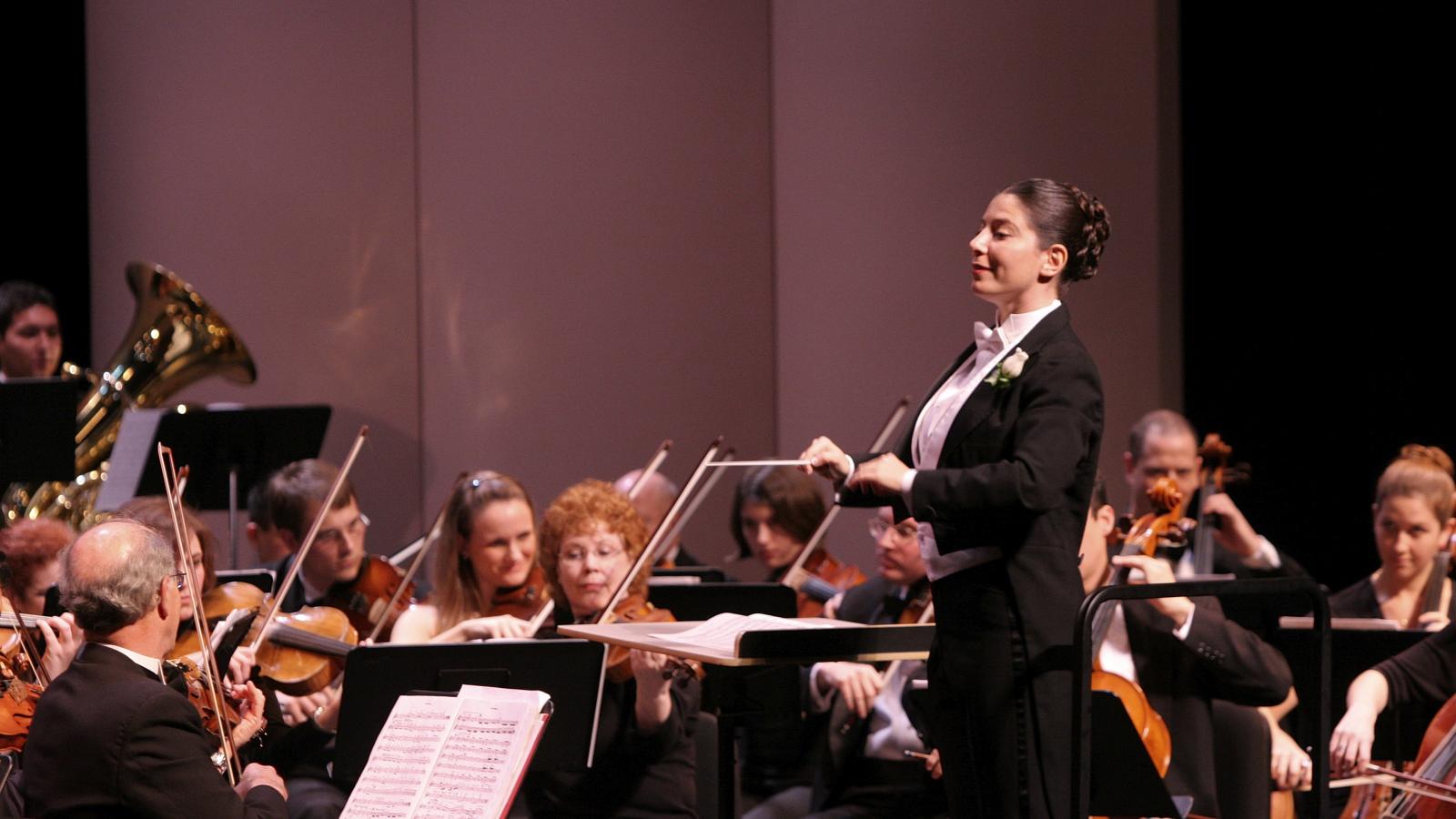
Music Director Libi Lebel leads the Texas Medical Center Orchestra in performance.
Ariela Alpert looks forward to Wednesday evenings. She picks up her violin, leaves her social work practice—where she helps people daily with anxiety, grief, and trauma issues—and heads to rehearsal for two hours: "It's a great outlet…part of my therapy and my stress relief."
Alpert is board president and one of 80 musicians in the Texas Medical Center Orchestra (TMCO) of Houston, an all-volunteer community orchestra comprised entirely of health-care professionals. Its roster includes doctors, dentists, biomedical scientists, nurses, medical students, and a variety of other professionals in the health-care industry.
Originally called the Doctors Orchestra of Houston, the ensemble was established in 2000 by Juilliard-trained pianist and conductor Libi Lebel. While a student, Lebel had heard of the Philadelphia Doctors' Chamber Orchestra and remembered thinking that a medical-based orchestra was an interesting concept. After her move to Houston, which houses one of the nation’s largest health-care industries, she decided to start a similar ensemble at the Texas Medical Center.
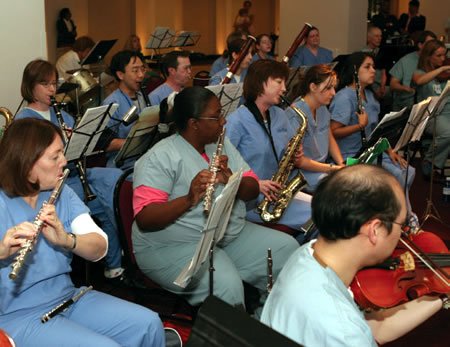
The Texas Medical Center Orchestra performs in scrubs at a free concert at the Methodist Hospital. |
"At first I was accepting anyone who played an instrument just to get volume, but now our auditions are very competitive," said Lebel. "Most members have played instruments through high school and college, and several were even professional musicians before switching fields. We've come a long way."
A long way, indeed, as the TMCO was recently invited to perform at Carnegie Hall as part of the 2011-12 DCINY Concert Series. Lebel credits team tenacity and the growing skill level for this achievement: "Sure, we work around pagers and demanding schedules…but I treat them like a professional orchestra."
A typical TMCO season includes three to four concerts at the Wortham Center in Houston and one performance at the Round Top Music Festival in Round Top, Texas. The programs integrate accessible, but challenging music, and always include professional soloists. At the orchestra's November concert, they performed the Houston premiere of Mark O’Connor's March of the Gypsy Fiddler, alongside Tchaikovsky's Fourth Symphony. "Libi is not elitist; she wants to please the audience with good performances, good music," acknowledged concertmaster Dr. Daniel Musher, professor of medicine at Baylor College of Medicine.
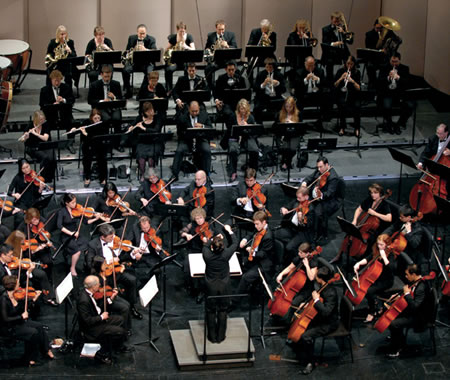
The Texas Medical Center Orchestra performing at the Wortham Center in Houston. |
Lebel's programming occasionally reflects the unique ensemble she conducts. In a past season, dancers reenacted five scenes from a doctor's life, with music performed by the TMCO. These scenes included an emergency room to the soundtrack of Offenbach's Can Can, a prayer room to Barber’s Adagio for Strings, and a waiting room to Leroy Anderson's The Syncopated Clock. "After 10 years, I haven't gotten bored yet, because after every program I think 'how can I top that?'' said Lebel.
In addition to their regular season concerts, the TMCO also strives to make a broader impact in their community. As a testament to this, each concert is dedicated to a medical charity. In the past, the charity received direct proceeds from the concert. However, due to regranting stipulations from funders, the TMCO now donates blocks of tickets for the charities' discretionary use, often for fundraising purposes or as constituent benefits. In addition to the donated tickets, a charity representative has the opportunity to present their cause directly to TMCO audiences and provide information on how to donate. Featured charities have included the AIDS Foundation of Houston, Eye Care for Kids Foundation, the Shriners Hospital for Children, and Family Services of Greater Houston, among many others.
Each TMCO concert also sponsors a local, economically disadvantaged school. Students and their families receive free tickets to the concert, and the orchestra tries to incorporate participation from the students, either during the concert or at intermission. In May, for example, the children's choir from KIPP Sharp College Prep Lower School sang in the TMCO's performance of Carmina Burana. Principal Alma Salman wrote in a letter to the orchestra: "As you know, the students at our school come from a limited social background…this was without a doubt the best example of excellence in music we have ever had."
"I really love that students come to our concerts, because it shows them that even though we are not professional musicians, music is still an important part of our lives," stated Alpert.
TMCO's outreach extends beyond concerts through collaborations with the medical community. Each year the ensemble performs a free concert in the lobby space of the Methodist Hospital as part of a concert series hosted by the Center for Performing Arts Medicine (CPAM). "It is extraordinary to see health-care professionals, still in their scrubs and white coats, pick up violins and trumpets to perform great music for patients, their families, staff, nurses, physicians, and visitors," acknowledged J. Todd Frazier, managing director of CPAM.
Remarkably, even with this commitment to outreach and performance, the TMCO remains an all-volunteer orchestra, with Lebel as its only paid staff. Board members typically assist her in all other organizational tasks, including marketing and fundraising. Their budget of $90,000 primarily pays guest soloists, the music director, and occasional percussion needs. Annual membership dues of $100 help to cover the costs, as do ticket sales and donations, but funding is tight, confirmed Alpert. "Eventually, though, we would love to bring on a paid administrator."
While doctors' orchestras exist around the world, the Texas Medical Center Orchestra is one of the most successful in the United States, and its scope and concentration of medical health professionals is unique. Members benefit from networking and participating in a shared love of music, but being a part of TMCO has other added benefits, as Musher explained: "For me, playing violin is a wonderful escape from the stresses of the everyday learning, teaching, and practicing medicine."
Lebel agreed. "I believe being a part of something like TMCO makes our health-care professionals much more compassionate…they learn to let go of stress and see the beauty in things."
As the orchestra elevates in status, it also receives a growing number of inquiries from health-care professionals contemplating a move to Houston. Sometimes an audition takes place in conjunction with an interview for a local health-care job or medical residency. Even orchestra members who had no intention of remaining in Houston have stayed in part because of the TMCO.
This includes Lynn Zechiedrich, TMCO flutist and associate professor of molecular virology and microbiology, biochemistry and molecular biology, and pharmacology at Baylor College of Medicine: "Indeed, when people approach me about other jobs at their institutions, my first thought is, 'How could I ever find another TMCO?' For sure, this orchestra is a huge reason for staying in Houston."
After 10 years leading the TMCO, Lebel also cannot imagine moving on: "I love working with people who play because they have a passion for it, not because they’re getting paid. Many professional musicians don’t even notice the conductors anymore, and they have lost the joy of playing music…I enjoy teaching them to create music out of dry notes and to savor every moment of it.
"Sure, it might be easier to conduct a professional orchestra, but this group is all heart," she added. "I love every second of it."




